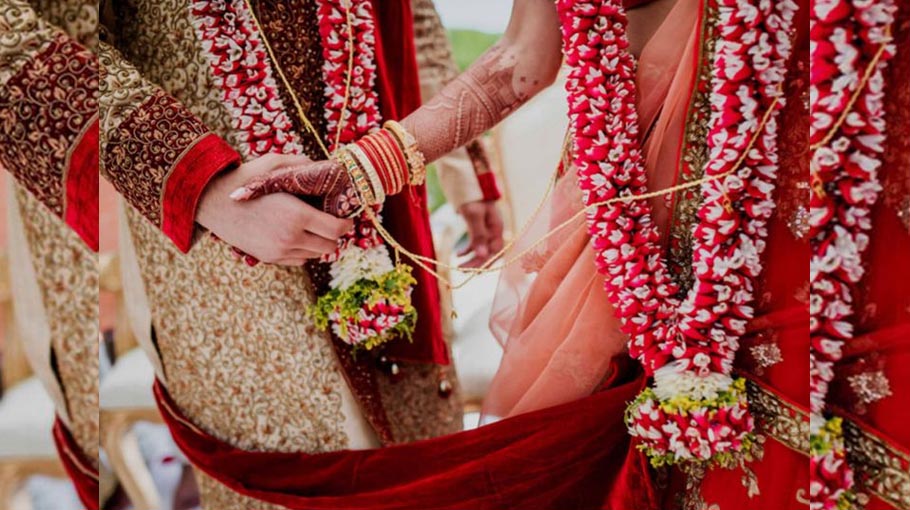Why raising legal age for a woman’s marriage is flawed
Experts say better access to education, health care will drive women to marry later

In India, almost everything about women is infantilised. We are regularly described as someone’s “mothers”, “sisters” or “daughters”, as if that is our only identity. Nothing cements this thought process more than the debate over raising the legal age at which women can get married from 18 to 21 years. Recently, the Modi government introduced the Prohibition of Child Marriage (Amendment) Bill in parliament which makes this major change.
The Bill is based on the recommendations of a task force led by former Samata Party leader Jaya Jaitly. The BJP’s argument in favour of the bill is that increasing the legal marriage age will give young women better access to education and also improve infant and maternal mortality ratios. Fair enough. We will talk about the merits in just a moment.
But after several opposition parties demanded a closer look at the legislation, given the wider impact it will have on personal laws related to marriage and more, the Bill was referred to a Parliamentary Standing Committee. This committee has 31 MPs of which only one is a woman. So a parliamentary committee comprising almost entirely of men, will sit and deliberate on when women should get married in India. If this doesn’t smack of patriarchy, what does?
Poverty and economic distress is driving more girls in rural areas to
be married before they turn 18 and this was even more acute during
the lockdowns in the pandemic
Shiv Sena MP Priyanka Chaturvedi, who has been very vocal about this issue, told Gulf News, “this is the same trend. Whether it was the medical termination of pregnancy bill — it again came from a male perspective. It also went to a committee which had only one woman, Smriti Irani … this amounts to denying women their agency, women need to be important stakeholders in this. It will change family dynamics, and how decisions are made.”
Now to the merits of the move to raise the legal marriage age of women. The stated aims to empower women and improve their health may seem as perfect as apple pie, but when women are held accountable as adults at the age of 18 for everything else in their lives, why is their agency to decide on when to get married being taken away till they turn 21? Is this really empowering women or just another way of taking control?
Shiv Sena MP Priyanka Chaturvedi told Gulf News, “I have some concerns with regard to Bill. It may sound progressive. You talk about women’s health but how many primary health centres have been set up in rural areas to deal with women’s health issues? You talk about education. But how many universities have been set up for women in rural areas? How safe is it for women to travel to cities for their education”?
Hyderabad MP Asaduddin Owaisi made a strong point when he lashed out against the Bill, calling it “typical paternalism” from the government, which he described as a “mohalla uncle”. “18-year-old men and women can sign contracts, start businesses, choose Prime Ministers and elect MPs and MLAs but not marry … They can consent to relationships and live-in partnerships but cannot choose their life partners. Just ridiculous,” he said.
Activists have pointed out that child marriages have taken place in the country despite existing laws against it and preventing marriages of women before the age of 21 will be even harder to implement. It may only end up punishing poorer sections. Here is why.
Read more: India reports 179,723 new Covid cases
The number of Child marriages have come down over the years which activists say is largely due to greater access to education and aspirations of young women. This didn’t need the stick of the law to make it happen. In fact as Priyanka Chaturvedi pointed out, “the average age of women getting married in India is now 22.1. So what is the need for a legislation?”
According to the National Family Health Survey, the number of child marriages decreased from 27 per cent to 23 per cent in the last five years but that the decrease is much more in urban areas. Poverty and economic distress is driving more girls in rural areas to be married before they turn 18 and this was even more acute during the lockdowns in the pandemic.
Experts say better access to education and health care is what will drive women to marry later and improve infant and maternal mortality numbers but in the name of women’s empowerment, there appears to be another attempt at taking greater control over their lives.
Nidhi Razdan is an award-winning journalist. She was the Executive Editor of NDTV. She has reported on Indian
politics and diplomacy.
Source: Gulf News



